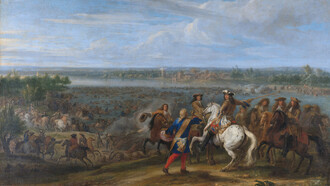Why does this article matter? Why do these superficial characters from Clarissa Pinkola’s novel Women Who Run With The Wolves matter? Here’s why: although their appearances or voices might be different in our minds, the truth is that we hear the voices of both these characters throughout our lifetime. One is a warrior and the other, though it may seem like a warrior from its strong declarations, in reality, is just a demon, an evil, who convinces us into pursuing harmful pleasures and in doing so, keeps us hidden from our true self – our true identity.
In the novel, Clarissa mentions this demon through various labels like ‘‘Bluebeard’’, ‘‘dark man’’ and ‘‘natural predator’’. This demon allows us to do anything we may like without considering the consequences, to do anything our heart desires as long as we pay the simple price of some harmful pleasures, which the demon tells us to overlook.
“A woman involved in a chemical addiction most definitely has at the back of her mind a set of older sisters who are saying “No! No way! This is bad for the mind and bad for the body. We refuse to continue.” But the desire to find Paradise draws the woman into the marriage to Bluebeard, the drug dealer of psychic highs.” (Pinkola 49)
There is a reason a demon is created in our mind but when it takes over, we feel so relaxed and unlike ourselves that we don’t really care what anyone says or what our own true self thinks. We love the lack of responsibility that we feel within the demon’s control so we often do not do anything to counter it and simply give in. However, it is critical to dig deeper into why this demon was created because demons aren’t created out of nowhere. There is some memory or memories that have been repressed, hidden deep within our subconscious, which make us feel our most vulnerable and the demon, by the promise of keeping away these memories forever, helps us feel high pleasures by letting us deny our moral obligations.
“In this state, a woman loses her energy to create, whether it be solutions to mundane matters in her life, such as school, family, friendships, or her concerns with compelling issues in the larger world, or with issues of spirit – her personal development, her art… She seems flattened out, filled with ideas perhaps but deeply anemic and more and more unable to act upon them.” (Pinkola 55)
Yet, when we confront this memory, we look into the demon’s birth and in doing so, take its power away from us. That is when The Wild Woman or our inner warrior truly comes into play. However, it is not as simple as being aware and recognising the root of the problem. After this stage, the challenge is then to confront and overcome all our vulnerable times in our lives that the demon uses against us. It appeals to us by giving us an escape from our painful feelings but it does so only to drain our energy and leech off our blood for it to become more powerful. This means that our psyche will get much worse before it can get better.
“When opposing aspects of a woman's psyche both reach their flash points, a woman may feel incredibly tired, for her libido is being drawn away in two opposite directions. But even if a woman is fatigued unto death with her miserable struggles, no matter what they might be, even though she is starved of soul, she must yet plan her escape; a woman must force herself forward anyway. At this critical time it is like being in subzero weather for a day and a night. In order to survive, we must not give in to fatigue. To go to sleep is certain death.” (Pinkola 60)
When we willingly face our biggest weaknesses and secrets, that is when our warrior gains back its power inside our soul and opens its eyes against a battle with the demon. It balances our psyche with the resilience that we built in our vulnerable memories and is able to help us restrain from the demon who appeals us into the darkness with its unrealistic declarations of ‘strength’, which lead us into ignoring our biggest barriers to success.
“Wild Woman comes diving over whatever fences, walls, or obstructions the predator has erected. She is not an icon, to be hung on the wall like a retablo, religious painting. She is a living being who comes to us anywhere, under any conditions. She and the predator have known each other a long, long time. She tracks him through dreams, through stories, through tales, and through women's entire lives. Wherever he is, she is, for she is the one who balances his predations.” (Pinkola 74)
Wild Woman is not just a character, it is every human’s inner warrior who understands that strength doesn’t come from ignorance but rather from facing weaknesses and battles head on. To deny responsibilities and pursue harmful pleasures is the demon’s realm where there are promises of a pleasing life but a largely unfulfilled one. By opening the cage of the inner warrior in our psyche, by confronting our vulnerabilities straightforwardly, we deny any internal or external forces to control our true identity.















